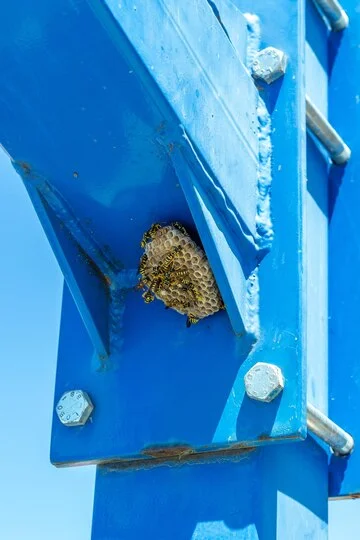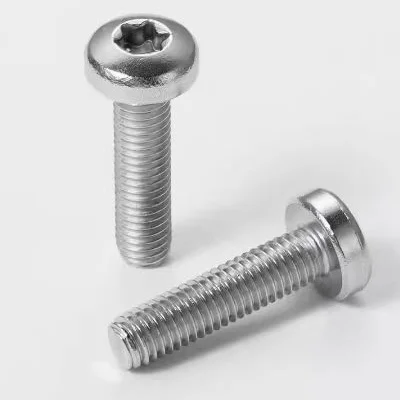caTEGORIES
Tags
How Fasteners Combat Corrosion in Harsh Marine Environments

Posted: November 21, 2024
Categories: News
To combat corrosion in harsh marine environments, it is so important to select corrosion-resistant materials for fasteners and be very familiar with the means of daily maintenance. This blog will help you a lot.
What Impact of Marine Environments Bring to Fasteners?
Fasteners used in settings encounter obstacles due to factors such as saltwater exposure and temperature changes along with the influence of biological elements that can greatly impact their durability and strength. To guarantee lasting performance and trustworthiness in conditions requires addressing and mitigating these environmental effects diligently.
The Impact of Saltwater on Corrosion
Saltwater is well known for its ability to cause corrosion problems as it can speed up the oxidation process of fasteners when they are in contact with conditions leading to rust and deterioration concerns, especially for materials such as steel that’s susceptible to corrosion without proper protection measures in place selecting materials that can withstand salt-induced corrosion becomes crucial for marine use.
Temperature and Humidity Fluctuations
In the ocean environment¸ temperature and humidity levels can change significantly which can result in the expansion and contraction of metal materials causing stress fractures or loosened fasteners to occur. The presence of humidity also encourages the accumulation of moisture on metal surfaces which increases the risk of corrosion. It’s crucial to select fasteners that are specifically built to endure these challenges.
Biology Contributing to Corrosion
Marine biology is involved in the corrosion of fasteners like barnacles and algae. They can stick to the surfaces of fasteners and form environments that trap moisture and speed up the corrosion process. Knowing about the aspects involved can assist in choosing the materials and coatings to prevent bio-fouling issues.
How to Select Correct Materials to Prevent Corrosion?
Select the materials plays a role in preventing corrosion of fasteners in marine environments as various metals exhibit different levels of resistance to external elements.

Choosing the Right Metal Alloys
Opting for metal alloys tailored for applications can greatly lower the chances of corrosion issues occurring onboard vessels and structures exposed to saltwater environments. Stainless steel blends with chromium levels offer protection against the corrosive effects of saltwater while aluminum mixtures are preferred for their lightweight characteristics and ability to resist oxidation.
Innovative Materials for Enhanced Durability
Cutting-edge materials, like titanium or composite polymers, provide improved strength in ocean settings. Titanium’s inherent oxide layer offers defense against rust and corrosion whereas composite polymers are entirely resistant to rust. These state-of-the-art materials guarantee that fasteners retain their stability as time goes by.
How to Combat Corrosion in Marine Environments? Daily Maintenance!
Consistent upkeep is crucial for addressing corrosion issues in a manner and ensuring the prolonged durability of your fasteners through regular monitoring and inspections.
Monitoring and Assessing Environmental Conditions
Keeping an eye on the environment lets you predict problems before they happen. Getting insights from tools such as hydrometers or devices for measuring salt levels helps in evaluating humidity and salt content. This allows for planning maintenance actions in advance.
Regular Inspections
Regularly carrying out inspections helps to catch any signs of wear or damage on fasteners preventing small problems from turning into significant failures that could impact the structural stability.
Cleaning
Regular maintenance helps to get rid of substances, such as salt deposits or organic build-up on the surfaces of fasteners rinsing with water post-exposure to saltwater can reduce the risk of long-term damage from corrosive materials.
Protective Coatings
Utilizing layers like galvanization or specific paints forms a shield against elements boosting the durability of fasteners by averting direct exposure to harmful substances commonly present in marine settings.
Engineering Solutions for Longevity
Developing engineering solutions aimed at long-term durability requires creating fastener systems that reduce contact with substances by positioning or shielding them from harm’s way teaming up with professionals like Qewit guarantees access to advanced solutions customized to individual requirements.
If you need details about how Qewit can help with your marine fastening requirements please feel free to get in touch with us.
How Can You Ensure Long-Term Performance of Fasteners in Marine Environments?
Maximizing the effectiveness of fasteners in settings over time requires choices and upkeep strategies that prioritize materials and inventive approaches to boost their longevity and dependability.
Recommended Products
It’s important to choose products that are made for environments because they need to resist corrosion in those conditions Stainless steel fasteners with high chromium content and titanium fasteners are great choices for this purpose Composite polymers are also a good option as don’t rust at all These materials are designed to endure the tough conditions found in marine settings and last a long time while being dependable.
Additionally, by using coatings like galvanization or specific marine grade paints it is possible to increase the durability of fasteners more by forming a shield against corrosive elements. These coatings prove to be highly efficient in deterring exposure to saltwater and other harmful agents.
Partnering with Experts for Optimal Solutions
Engaging with professionals in the field can offer customized solutions to tackle issues encountered in settings. The expertise of organizations, such as Qewit lies in creating fastening mechanisms utilizing materials and protective measures. Utilizing their insights enables you to adopt approaches that improve the efficiency and longevity of your fasteners.
For tailored support and to discover cutting-edge fastening options at your disposal please don’t hesitate to get in touch with us.
FAQs
Q: How long does daily maintenance take?
The duration needed for upkeep changes based on the level of contact with substances and the intricacy of the fastening mechanism used in your setup varies greatly from one system to another. Ordinarily performed inspections and cleaning tasks can usually be wrapped up quickly in about 15 to 30 minutes per check-up session on average. This hands-on strategy is designed to catch any problems at a stage that serves to reduce operational interruptions and prolong the lifespan of your fasteners.
Q: Does it cost a lot to use a special fastener?
Special fasteners made for use might be pricier at first than ones but they can save you money in the long run by cutting down on maintenance and stopping early breakdowns. Buying top-notch materials and protective tech guarantees that your fastening setup stays dependable over time and cuts your costs in the end.


